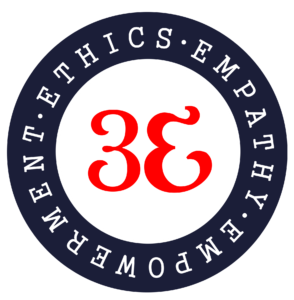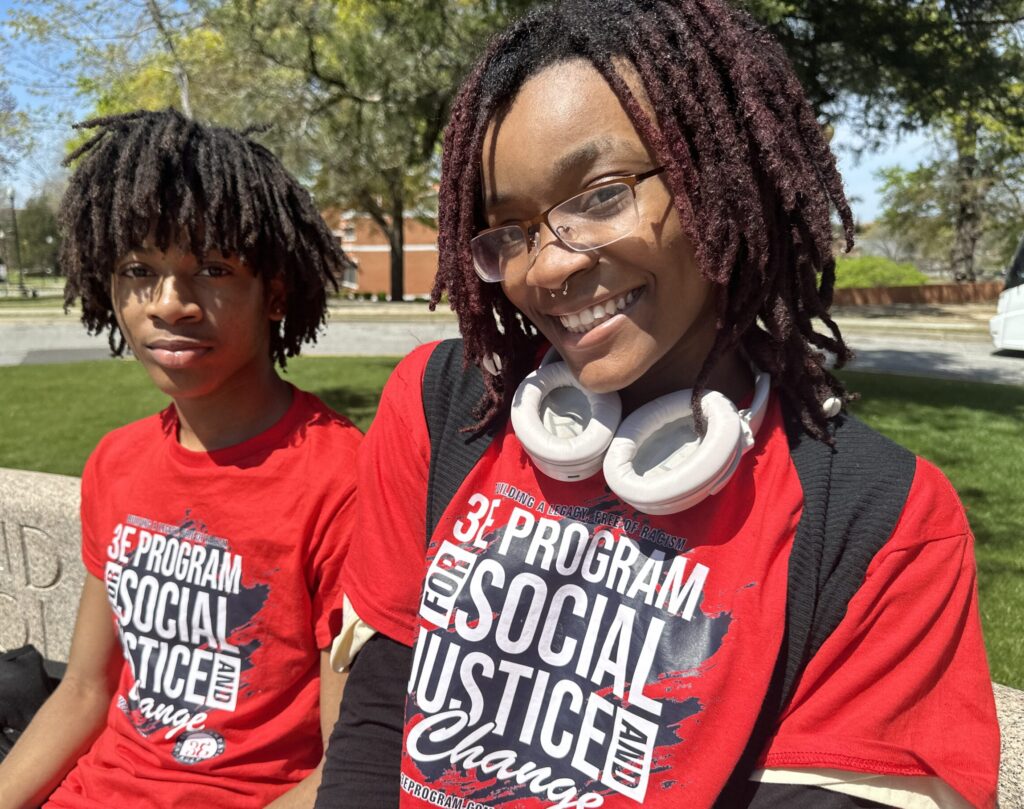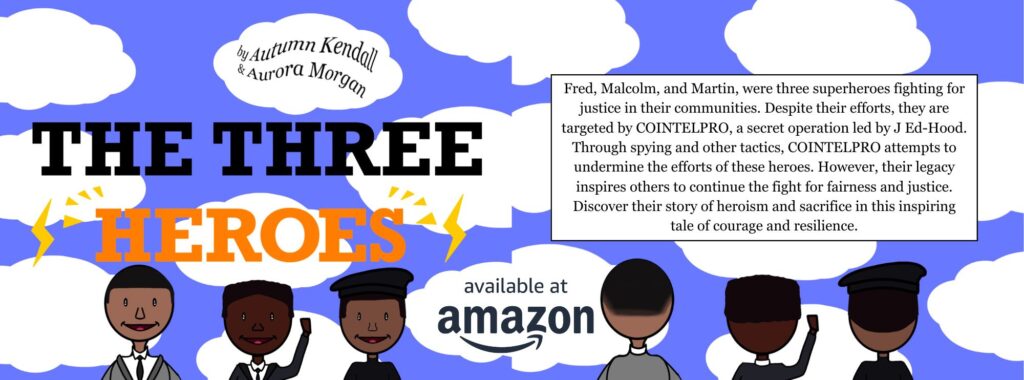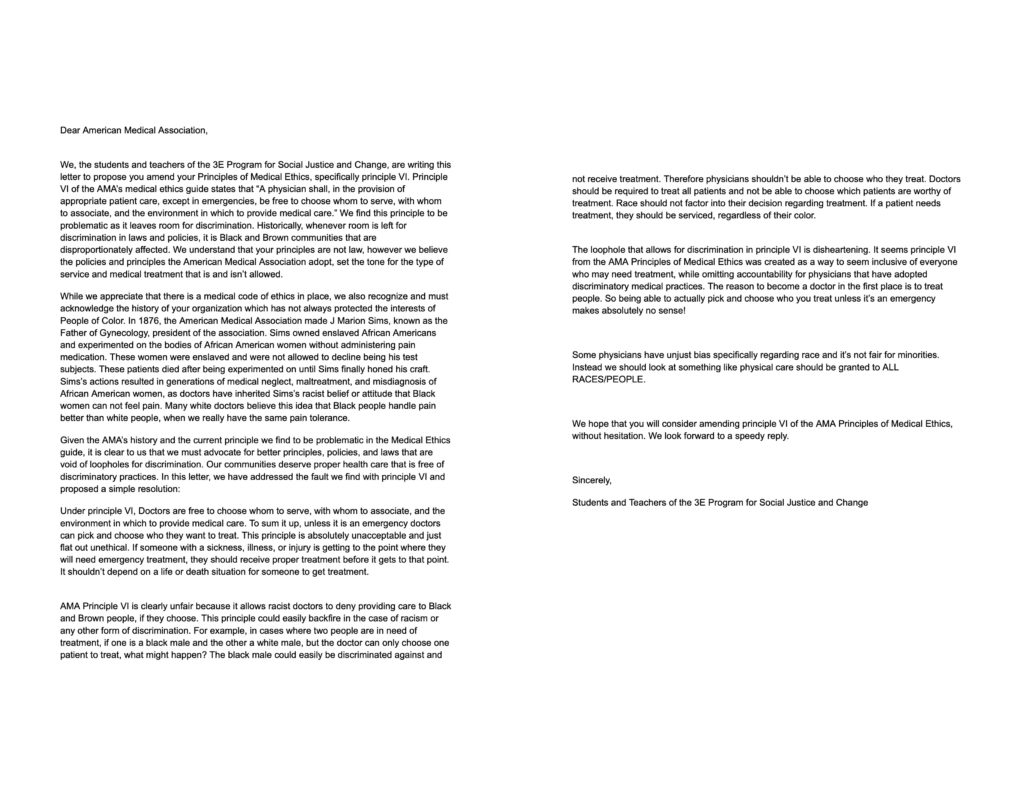3E Program for Social Justice and Change
African American History Online Course
Inclusive of African American History, with:
Ambassador Opportunities | Cultural Trips | Guest Speakers
For middle and high school students (13-18)
Can be implemented in the classroom or at home
Requires computer and internet access
Schools/ CBO's/ Parents can enroll their students
This Spring, 3E Program students traveled from New York and Atlanta to Montgomery Alabama to visit historical and cultural sites
Browse images from our recent trip in the photo gallery
PARENT AND STUDENT TESTIMONIALS
The 3E Program for Social Justice and Change African American History course is making an impact. Press play, to watch and listen to what parents and students are have to say.








3E PROGAM FOUNDATION
Ethics
Defines who we are as individuals or collectively as a society. The decisions we make have an impact on the well-being of others. The 3E Program presents historical evidence that guides students to think critically, in order to form their own opinions and assess right vs wrong.
Empathy
One of the most important skills a person can have because it allows an individual to connect to another on a more personal level. The 3E Program provides opportunities for students to engage in tasks that guide them to understand and relate to the attitudes and emotions of communities subjected to generational trauma and tragedies.
Empowerment
Self-determination and confidence are the key to empowerment. 3E lesson plans encourage students to advocate and act on behalf of their own interests, or that of their community, by participating in civic engagement tasks such as writing a congressional bill, developing community proposals, strategizing social awareness campaigns, and creating public service announcements.
A PROGRAM THAT'S GUARANTEED TO SUCCEED!
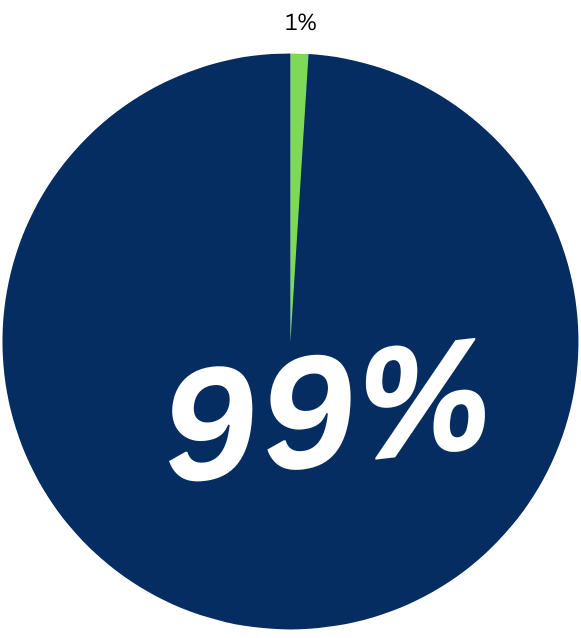
99% of students that completed the 3E Program
- increased their knowledge in U.S History
- gained an understanding of the current social climate in America

65.5 % of these students drastically increased their knowledge
This means the scores from their assessment taken at the beginning of the program increased dramatically when they took the assessment again at the end of the course

80 % of students felt empowered to make positive changes in their communities

75 % of students increased in empathy
3E Program Classwork Highlight
As part of our 3E Program, students explored a significant chapter in African American history — the Tuskegee Syphilis Experiment. Conducted on Black men without their consent, it was the longest non-therapeutic medical experiment in history. After its exposure, ethical guidelines were established to prevent such injustices from occurring again, marking a pivotal moment in medical ethics and civil rights. As a class, we reviewed the Medical Code of Ethics established by the American Medical Association. We found a clause that still leaves room for discrimination. We decided to collectively write a letter to the AMA to address the loophole, in hopes of making a change. The AMA President, Jesse M. Ehrenfeld, responded to our letter to let us know what the AMA is doing to address the problem.
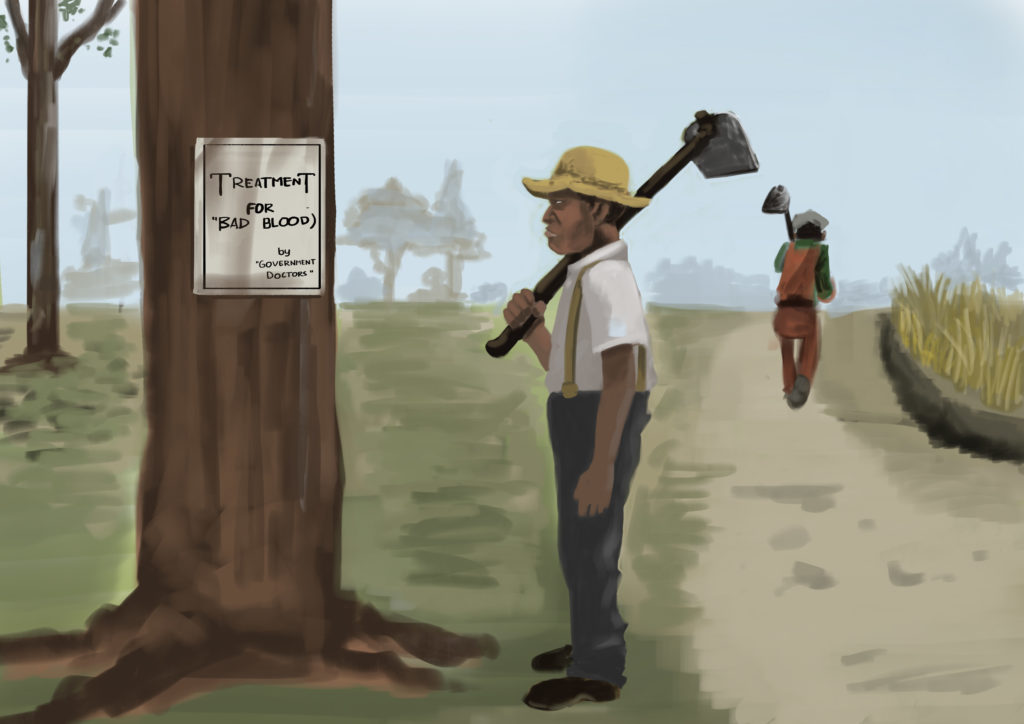
Tuskegee Syphilis Experiment Artwork
“Treatment for Bad Blood”
